Tom Scholz on Brad Delp: ‘Best Male Studio Singer I’ve Ever Heard’
by Jim SullivanIn part one of our extensive 2017 interview with Tom Scholz, the Boston mastermind talked about what fans could expect when the band tours. In the second half, we asked him about his influences, vocals and lyrics, and just how long he can keep doing what he’s doing.
You are noted for your harmonies, guitar and vocal. How does that work in a live setting?
Tom Scholz: There are, of course, in my Boston recordings, tons of three-part harmonies, but we don’t just do three-part harmonies, we do three-part harmonies with doubled voices within the harmonies and there’s usually some overlapping background or lead lines that have harmonies along with it. [Live] you really need six voices to do that. There are countless times during the set when all six mics are live and all six people are playing and singing and they do a great job.
You took your first lead vocal on “Love Got Away” on the last album, Life, Love & Hope, in 2013.
I did sing a lead. I actually have a two-and-a-half-octave range. Unfortunately, it starts at low D, which is off the neck of a guitar at the low end and doesn’t go up that high on the other end, so it’s of questionable use a lot of the time. But there are moments when I get to shine, for instance in “Higher Power” on the Greatest Hits album. That super low voice, that’s yours truly. I get to do the low part and I’m the only one who can do it.
Let’s talk lead singers for a moment. Tommy DeCarlo is the singer now.
Tommy is awesome. Tommy does for Boston on stage what Brad Delp did for Boston in the studio. Brad was the best male studio singer I’ve ever heard and Tommy is the best male stage singer I’ve ever heard. We just stumbled onto him and he works very hard at it. And he’s a real good keyboard player—he plays difficult things.
Was there a long audition process?
Nope. [laughs] He came up and sang “Don’t Look Back” and just blew our socks off. He had never been in a band before. Now you look at him and you would swear he’s been doing it since he was a teenager.
It was recently the tenth anniversary of Brad Delp’s death. [Delp died on March 9, 2007.] Any thoughts about working with him?
He was the best studio singer that I’d ever worked with. In the studio, he worked very hard. Brad wasn’t the most motivated person but if you got him around something that he wanted to do and liked to do he would work very hard at it. He was very comfortable in the studio working on recording music the same way I did it. He could do with his voice what I did with the instruments and basically create a chorus. I don’t think it really mattered to him what the music was. Of course, we spent an enormous amount of time together. The only other time that there was anybody in the studio, frankly, was when Brad was there singing. The two of us would go on all day and into the night and start again the next day. We didn’t even have to speak when we were doing things. It was mental telepathy. It was a really good relationship in that sense and we had a lot of fun.
Boston gained some cred in the grunge era when Nirvana copped to the fact that the chord progression in “Smells Like Teen Spirit” was semi-nicked from “More Than a Feeling.” What are your thoughts?
They didn’t do a great job on the chorus. I heard the story about people thinking that part of that song sounds like it was a swipe from “More Than a Feeling.” I don’t hear it. If it were, I would consider it a compliment.
Your influences?
My biggest influences were by far, luckily, classical music artists—not classic rock, actual classical music. I spent a lot of my childhood listening to classical music, so whenever I start to think in terms of music—writing a melody line or playing lead—what’s rolling around in my head are things that were in my head back when I was 5 and 6 years old. Whether I intend to or not, you pull things back out. There was a song on Third Stage called “To Be a Man.” It was an unusual arrangement with an unusual chorus with a lot of key changes and I knew that those chords came from a piece of music, but I had no idea what it was. Back when I listened to it, at first, I was too young to read the labels so I was too young to know what I was listening to. About 10 years ago, I finally heard the piece of music and it was a Beethoven piece. I don’t remember the name of it. It took me 20-plus years before I was able to stumble on to where that piece of music came from.
Any rock band influences from the 60s?
Oh, absolutely! In the Buddy Holly and Elvis days, I was pretty young and that didn’t do it for me. I couldn’t have cared less. I had no interest. When I heard the Kinks [sings signature “You Really Got Me” riff], that was it! I got the Kinks, the Yardbirds, the Animals, Steppenwolf and then a year or two later Jeff Beck and Jimmy Page. These were the artists that got me really excited about rock ’n’ roll and made me want to get into it. [Kinks guitarist Dave Davies] was one of those people that were in my mind; way ahead of his time. The stuff that came out of his guitar and onto a record was just mind-blowing to me back in the ’60s. I had never heard anything like it and it set me on a whole different path in my life.
Back in the day, the late ‘60s, concerts featured incredible diversity, like blues, hard rock, folk on one stage. The assumption was the listener liked all that stuff and could adjust and dig different genres.
That’s true. In the industry, people like to pigeonhole you – he’s a blues artist, he’s a jazz artist, he’s a fusion [guy] or pop. You know, the band Boston doesn’t really fit any of those. I was going over some things last night, working out some new ideas, the breaks between a couple of songs, and the crazy thing is, I’m playing a scale and I wanted to talk to Gary Pihl about it and do a little tradeoff thing with him and I can’t describe to him on the phone or on an email what the scale is or what type of thing it is because it’s not blues, it’s not rock ’n’ roll, it’s not jazz. I don’t have any idea if this musical scale ever existed before this spring. We do things that would seem to be a cool diversion and complement the rest of our repertoire and some of it is really out there as far as musically speaking, to the point that I’m not sure it can be described in conventional terms. And that has been appreciated by our audiences.
Is there an overarching lyrical theme to Boston? I take away a lot of hopefulness and love.
That’s the idea. The most important things in a human being’s life are relationships with others. So that’s a no-brainer. If you want to address things people can relate to, you’re going to have to think about addressing relationships. That is the number one thing that drives everyone, that runs everybody’s life. There are lots of other things that are also important, but they all play second fiddle. My interest, when I got involved in music, as opposed to just listening to it, was an escape and it had to be a good time. There are plenty of people that write music or perform music that is absolutely, definitely art in the purest sense, but is dark or angry or sad. That wasn’t what music meant to me. Music was my escape from all the crap in life to have a few moments that I really enjoyed, to make me inspired or proud or just plain happy. I look back over that music and [think], “How come that happened in the 60s to me?” I have some theories.
What’s the biggest misconception about Tom Scholz?
I have no idea what people think of me and when I do run into someone who is either a fan of Boston music or has followed something that I’ve done—for instance our efforts to help fund organizations that are doing things that are very important to us—it’s always very exciting to have someone come up and say, “I went back to school because of what I heard on this album.” Hearing from somebody who went back to school or got off drugs or they changed their life or just listened to Don’t Look Back at a really tough time and came out the other side, that is what is important to me. You can’t really control what everybody in the world is going to think of you.
Seeing how you’re in such good shape and health, how long do you think you can keep doing this?
Hell, I wouldn’t have thought I’d be doing this at 70.
Do you project ahead and see it as open-ended or see that at some point you won’t be doing this?
It’s kind of obvious that at some point I won’t be, as I will be dead. There’s a point where we all will be dead. Usually there’s some point before we’re dead, there are things we can’t do. Look, I have faced many stages in my life where I could no longer do things that I expected I would be able to do indefinitely, usually because of injury or something else. But things happen as you go through life. What I try to do is look at things I can do and do those things. I’ve spent 20 years doing something that I think is really cool [freestyle ice skating], though a lot of other people think it’s very geeky. [laughs].
What are your expectations for a Boston audience in 2017? Are there the people you hooked with that first album? Are you getting younger people, new people, too?
It’s a really wide range of people from individuals who just heard Boston on the radio and aren’t that familiar with individual albums or which song came from where, and then there are the ones who own every Boston CD. I know that because we always play songs from Walk On and from Love, Life & Hope and they always get a huge response. I know that there are a lot of people in the audience who are well-versed in Boston. Of course, we take very heavily from the first three albums in our live performance because there were a lot of hit songs on those albums and people expect to hear them.
Watch Boston perform in 2017
I don’t think you’re the kind of person who would not give people what they want.
We try really hard and the most difficult choices each year are what we leave out. That is the heartbreaking thing—we just don’t have time, we can’t do it. We know a lot more music than we perform.
Listen to Tom Scholz sing “Love Got Away” on Boston’s Life, Love and Hope album
To read part one of our interview, click here.
- J. Geils Talks About His Former Band: Last Interview - 04/11/2024
- 10 Unusual and Surprising Cover Songs - 03/30/2024
- ‘1971’ Book Makes a Strong Case for Best Rock Year - 03/28/2024

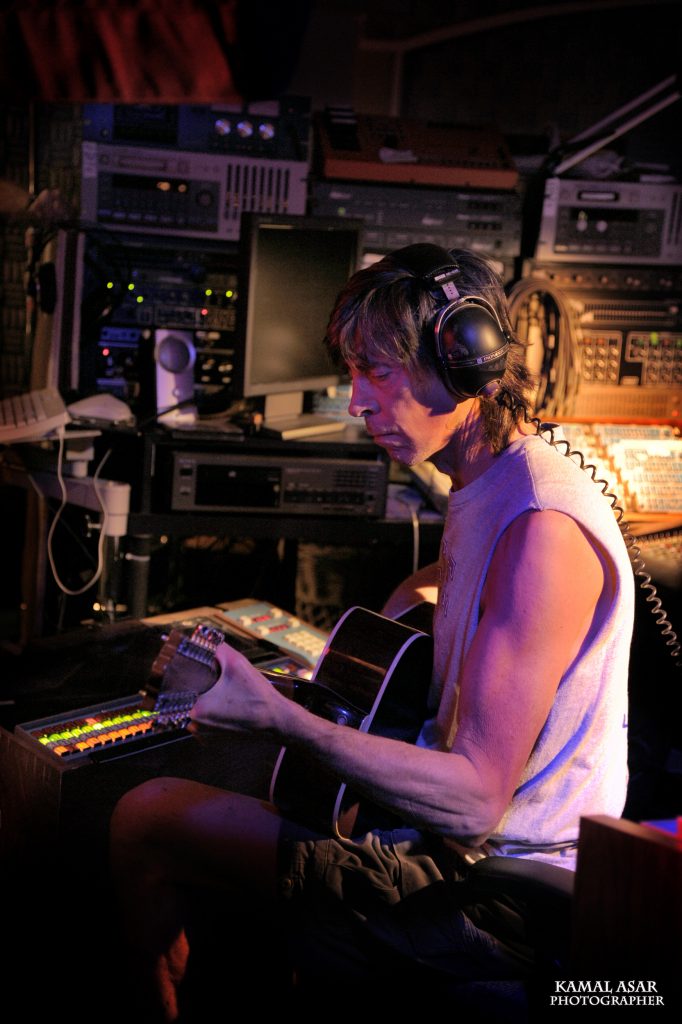
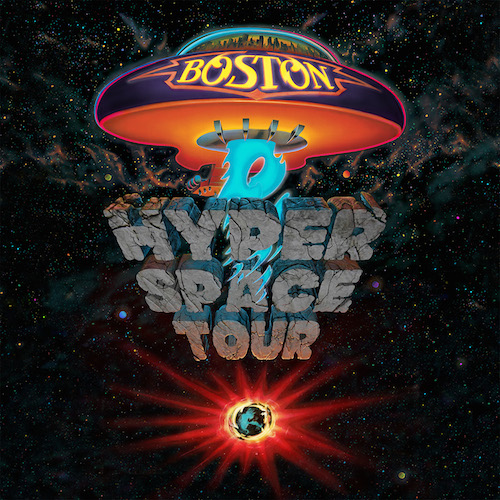


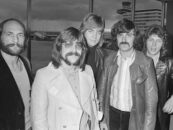
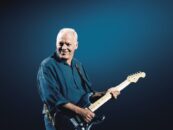
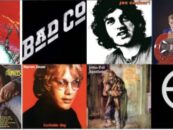
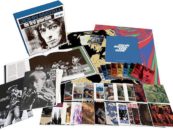

7 Comments so far
Jump into a conversationBrad, not the most motivated person? From a guy that took 10 years to release a record that was already half-done 10 years before? And the gap between ‘Don’t Look Back’ and ‘Third Stage’ notwithstanding.
Gimme a break.
I think he meant about recording in the studio. Brad was a very passive person and Tom is the complete opposite. He’s very meticulous about every detail.
Would love to hear a live album with a compilation of songs from the original members, the Third Stage players, the Walk On group, the 2000 era band, and the present musicians. Release a couple of your early unreleased Boston tracks like Television Politician and Shattered Images as well. Boston fans worldwide deserve a live album. We’ve been waiting such a “Long Time” for one… Thanks…
I think it’s a bit strange to be asked about your bandmate who committed suicide and your answer is that he wasn’t very motivated. I think brad’s voice live was the sweetest thing; not perfect but beautiful, and that’s better than perfect.
I think Brad Delp was one of the greatest singers I knew of growing up in the 70’s he had a one of a kind voice and I will always remember him kindly was very upset when he died. No one will ever replace him being a dj for 25 years will never b forgotten to me. Just remember suicide isn’t the answer just need to get help from a professional.
Brad delp was Boston and everyone who was a teenager in the 70s knows that. Sadly it seems Tom still can’t accept that fact.
Boston was and is Tom Scholz. Without his songs there wouldn’t be Boston. Brad was great singer but not a great songwriter. His sole compositions on the first three albums are the weakest. To me the Boston are those three albums. After that i lost interest to them.